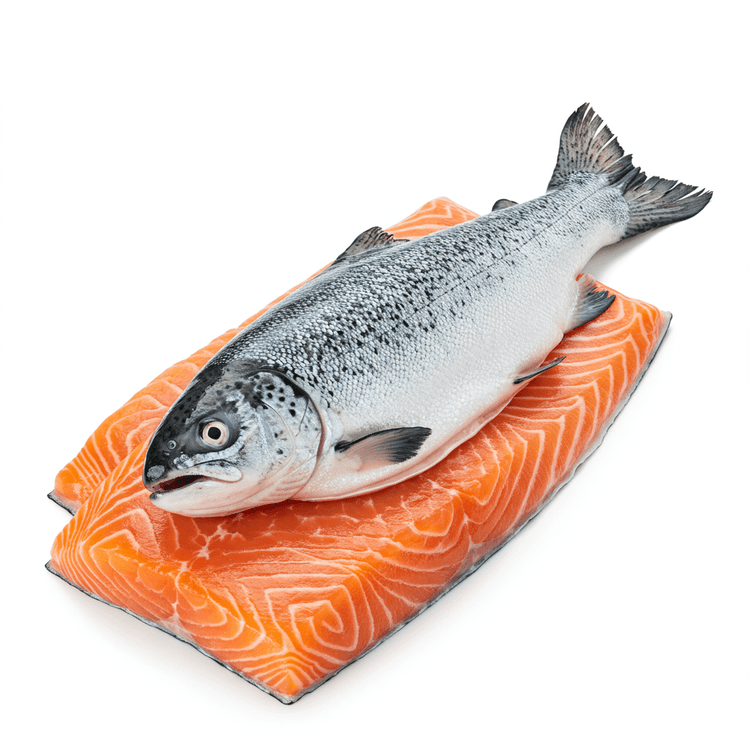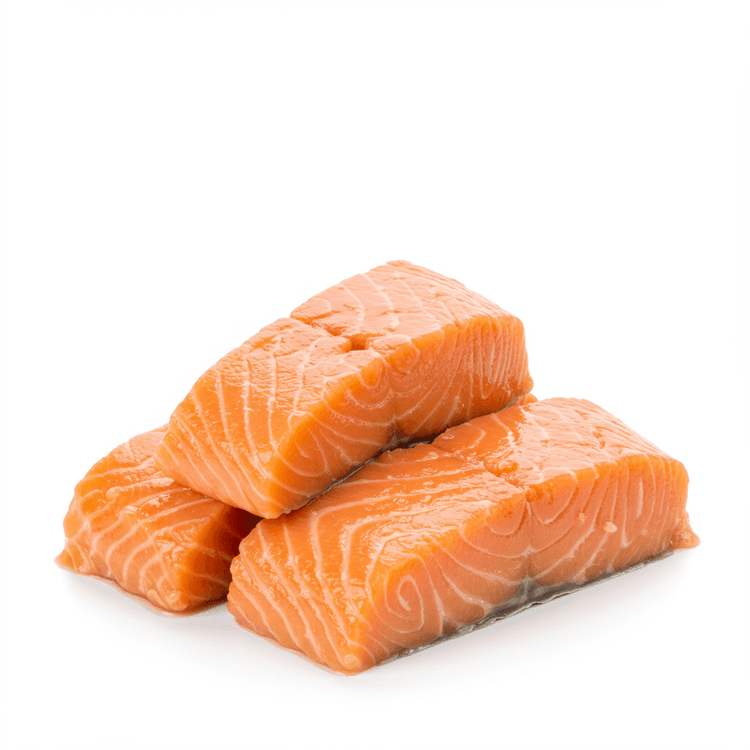
Salmon
Salmon is a popular and nutritious fatty fish recognized for its vibrant pink to orange flesh. Its flavor is rich and distinctive, often described as buttery and slightly sweet. The texture is typically tender and flaky when cooked properly. It's an excellent source of protein, omega-3 fatty acids, and essential vitamins, making it a healthy and delicious addition to any diet. Wild-caught salmon tends to have a deeper color and firmer texture compared to farmed salmon.
Common Uses
- Grilled salmon offers a smoky and flavorful main course. Marinate salmon fillets with herbs, lemon, and garlic before grilling for a healthy and satisfying meal.
- Baked salmon provides a simple and healthy way to prepare this versatile fish. Season with salt, pepper, and your favorite spices, then bake until flaky.
- Smoked salmon is a delicious addition to bagels, salads, or appetizers. Its smoky flavor pairs well with cream cheese, capers, and red onion.
- Pan-seared salmon delivers a crispy skin and moist, tender flesh. Sear skin-side down in a hot pan until golden brown and crispy, then flip and cook until done.
- Salmon sushi and sashimi showcase the fish's delicate flavor and smooth texture. Ensure the salmon is sushi-grade and prepared by a skilled professional.
- Salmon patties or cakes are a great way to use leftover cooked salmon. Combine flaked salmon with breadcrumbs, eggs, and seasonings, then form into patties and pan-fry or bake.
Nutrition (per serving)
Nutrition (per serving)
Calories
208.0kcal (10.4%)
Protein
20.4g (40.84%)
Carbs
0.0g
Sugars
0.0g
Healthy Fat
11.9g
Unhealthy Fat
3.0g
% Daily Value based on a 2000 calorie diet
Nutrition (per serving)
Calories
208.0kcal (10.4%)
Protein
20.4g (40.84%)
Carbs
0.0g
Sugars
0.0g
Healthy Fat
11.9g
Unhealthy Fat
3.0g
% Daily Value based on a 2000 calorie diet
Health Benefits
- Rich in Omega-3 fatty acids, supporting heart health and reducing inflammation.
- Excellent source of high-quality protein, essential for muscle building and repair.
- Provides Vitamin D, crucial for bone health and immune function.
- Contains B vitamins, vital for energy production and nerve function.
- Offers potassium, which helps regulate blood pressure.
- Good source of antioxidants like selenium, protecting cells from damage.
Substitutes
Chefadora AI is here.
Experience smarter, stress-free cooking.
Storage Tips
Fresh salmon should be stored in the refrigerator immediately upon purchase. Wrap it tightly in plastic wrap or place it in an airtight container to prevent it from drying out and to avoid odor transfer to other foods. It is best consumed within 1-2 days. For longer storage, salmon can be frozen. Before freezing, wrap the salmon tightly in freezer-safe plastic wrap, then place it in a freezer bag, removing as much air as possible. Frozen salmon can last for up to 2-3 months.
Marnirni-apinthi Building, Lot Fourteen,
North Terrace, Adelaide, South Australia, 5000
Australia

